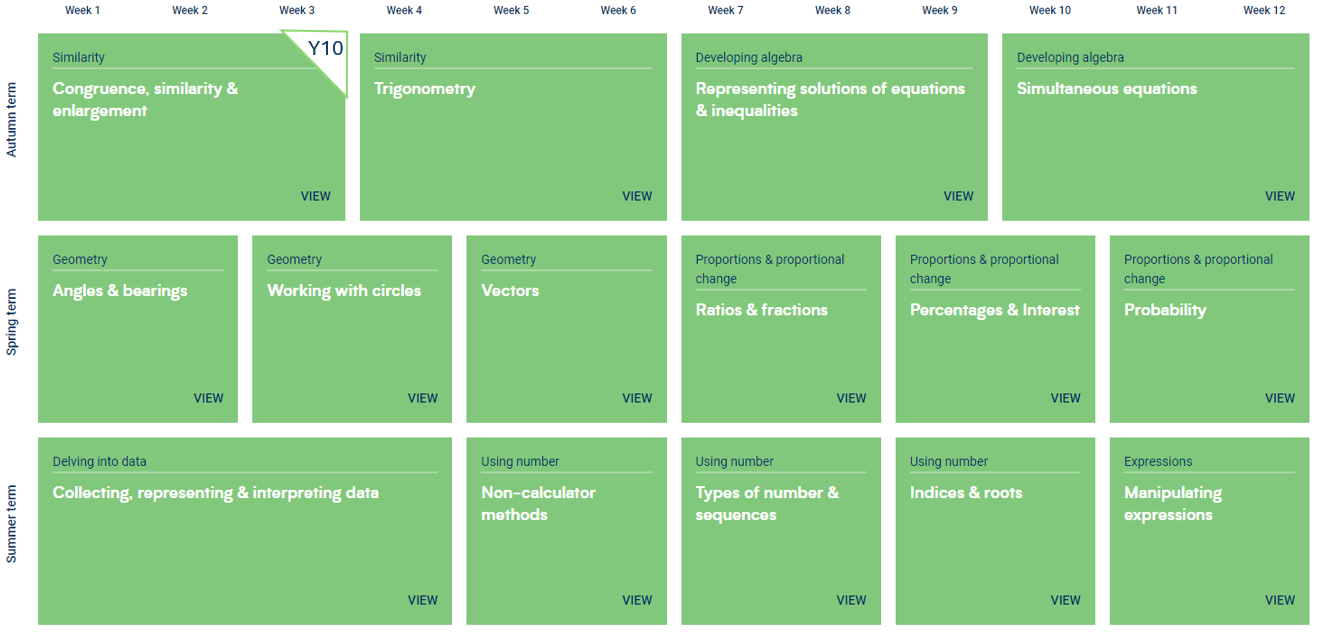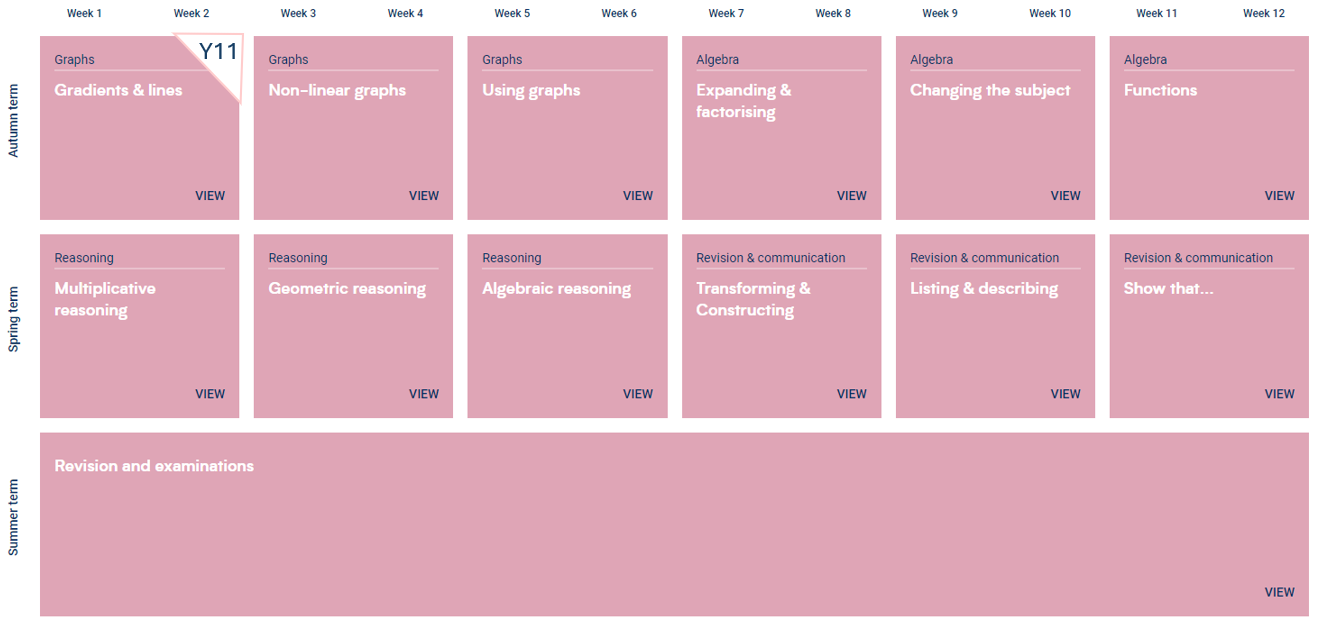Mathematics
Overview
Introduction
As students continue their mathematical journeys at Westfield, they revisit some topics that were covered in Years 7-9 whilst learning new skills and areas that will prepare them to sit their exams at the end of Year 11. Teachers make sure that they revisit areas of development in lesson starters, and following any mock or end of unit assessments.
Qualification
GCSE
Awarding body
Pearson Edexcel
Course leader
Mrs E Bowler
Assessment
- Examination: 100%
- Paper 1 (non-calculator): 1 hour 30 mins | 33%
- Paper 2 (calculator): 1 hour 30 mins | 33%
- Paper 3 (calculator): 1 hour 30 mins | 33%
- Non-examined assessment: 0%
Curriculum
Course content
Skills will be based on:
- number
- algebra
- ratio
- proportion and rates of change
- geometry and measure
- probability and statistics
Topics
Year 10
Year 11
Further mathematics (level 2 certificate)
In Year 11, those taking the higher tier exams are offered the chance to complete an additional qualification - the AQA Level 2 Further Maths Certificate. This serves as a stepping stone to A-level and further boosts their GCSE progress as approximately two thirds of the further maths content is an extension of GCSE skills. We are proud of this offer and pupils feel well prepared for A-level study with this additional course.
Skills and requirements
Skills required
To succeed in Mathematics GCSE, students need to develop the following skills:
- Problem-solving: ability to break down complex problems into manageable steps and find effective solutions.
- Logical reasoning: applying clear, structured thinking to tackle various mathematical challenges.
- Numeracy skills: understanding mathematical concepts and working confidently with numbers in different contexts.
- Creativity: thinking outside the box to explore multiple approaches to problems.
- Attention to detail: accuracy in calculations and following steps carefully to avoid errors.
Beyond the classroom
Future pathways
Mathematics will open lots of doors for you as you leave school – you can go on to study mathematics at A-level or use it throughout college whilst completing an apprenticeship.
All careers use mathematics skills to some degree and there are many careers where mathematics is essential, such as electricians, builders, bank managers, web designers, computer/game programming, sports engineering and many more.


